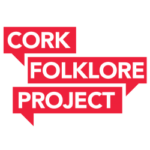Catching Stories is a Science Foundation Ireland-funded Discover funded project undertaken by University College Cork’s Department of Folklore & Ethnology, Department of Pathology and the Cork Folklore Project.
The project consists of a collection of oral testimonies, text-based responses, objects of memory and ephemera relating to infectious diseases in Ireland. These strands will be presented in this online resource with additional commentary from an immunologist to give a holistic view of how infectious disease and the subsequent public health measures affected Irish society.
Here you can listen to and read oral testimony relating to the experience of diseases such as tuberculosis, measles, mumps and polio, in Cork City and surrounds in the mid-twentieth century. The extracts are accompanied by a review of the history of the disease and vaccination in Ireland, and material on and reference to the development and response to vaccination worldwide.
You can read about the project in the Irish Times article from 25 May 2021:
‘The real fear was being transferred down to Mallow and having chest surgery. Surgical options in those days were brutal. They’d rip out a bunch of ribs, let the lung collapse and all that stuff pump air into your pleural cavity. ‘
Dr Paul O’Brien – TB Paitent Heatherside
Jump Right In
WHAT KIND OF INTERVIEWS ARE DRAWN UPON IN CATCHING STORIES?
‘Catching Stories’ draws from across the whole Cork Folklore Project Audio Archive. To begin with, we returned to our existing holdings to see where infectious diseases were mentioned and explored. Through this exploration of the archive we found that the diseases and their impact are mentioned with regularity in our interviews, and these spontaneous mentions and descriptions show the profound and sometimes devastating effect the experiences had on individuals and families. From there, we set out to have more targeted long form interviews where we explored the themes in more depth.
Extracts are embedded on thematic pages, but are also available with more extensive documentation, such as full transcriptions, as Item entries that can be browsed. In their ‘Item’ entries, the extracts are linked to the entries for the full interviews in the Cork Folklore Project Audio Catalogue, and the listener can get more background on the interview and interviewee by visiting the full interview catalogue entry.
Why develop ‘Catching Stories’?
A contributing factor to the return of certain infectious diseases that have been eliminated or reduced in frequency is the fact that the memory of the effects of those diseases is fading. It is now impossible to appreciate the severe impact that communicable diseases had on individuals, families and communities in Ireland in the first half of the twentieth century. In the mid-1940s around 1,000 children died every year in Ireland from diseases such as whooping cough, measles, diphtheria, polio and tuberculosis. With the success of public immunisation programmes introduced in the 1950s, deaths from these diseases dropped to zero. By the twenty-first century, individual, family and community memory of the experience and impact of these diseases was fading. The aim of ‘Catching Stories’ is to explore how these memories could be useful in communicating how these diseases had an impact on communities, and at the same time to present oral testimony alongside a commentary from immunologist Dr. Beth Brint that explains the history of the disease in question.
‘They are so debilitating, it’s so important to get vaccinated’
Healthcare provider Imelda Cunning explains how important it is to get vaccinated.
Support From:
In 2019, the Cork Folklore Project received an Interdisciplinary Research Award from the College of Arts, Celtic Studies and Social Sciences, University College Cork, to carry out this pilot project.
In 2020, the project received an Irish Research Council New Foundations Award to develop the database in 2021.
In 2021 the project received an Science Foundation Ireland Discover grant to further develop the online resource and increase public engagement.
This resource has been created by Beth Brint, James Furey, and Clíona O’Carroll for the Cork Folklore Project.




